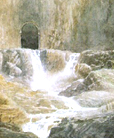Forum
Welcome Guest |
|
|---|---|
 Author Author |
Topic: |
|---|
| atalante_star |
|
||||||||
| IsildursHeir |
|
||||||||
| skaterelf |
|
||||||||
| atalante_star |
|
||||||||
| IsildursHeir |
|
||||||||
| atalante_star |
|
||||||||
| arvegil |
|
||||||||
| LadyEowyn_Of_Rohan |
|
||||||||
| atalante_star |
|
||||||||
| LadyEowyn_Of_Rohan |
|
||||||||
| atalante_star |
|
||||||||
| arvegil |
|
||||||||
| ladyAredhel |
|
||||||||
| Eressëa |
|
||||||||
| Hareth |
|
||||||||
| LadyEowyn_Of_Rohan |
|
||||||||
| Elven_Light |
|
||||||||
| LadyEowyn_Of_Rohan | |||||||||
| clarinetist4life |
|
||||||||
| PotbellyHairyfoot |
|
||||||||
| atalante_star |
|
||||||||
| High_King_Of_Noldor |
|
||||||||
| Nienna-of-the-Valar |
|
||||||||
| gil_galad_king |
|
||||||||
| Morwinyoniel |
|
||||||||
| Kaur |
|
||||||||
| arelenriel |
|
||||||||
| cirdaneth |
|
||||||||
| Gandolorin |
|
||||||||
| Members Online |









 RE: Life after death
RE: Life after death

 Seriously, though, how do we know he didn't - in spirit if nothing else? We know so little about the afterlife of Men, and even less about the afterlife of horses
Seriously, though, how do we know he didn't - in spirit if nothing else? We know so little about the afterlife of Men, and even less about the afterlife of horses 

